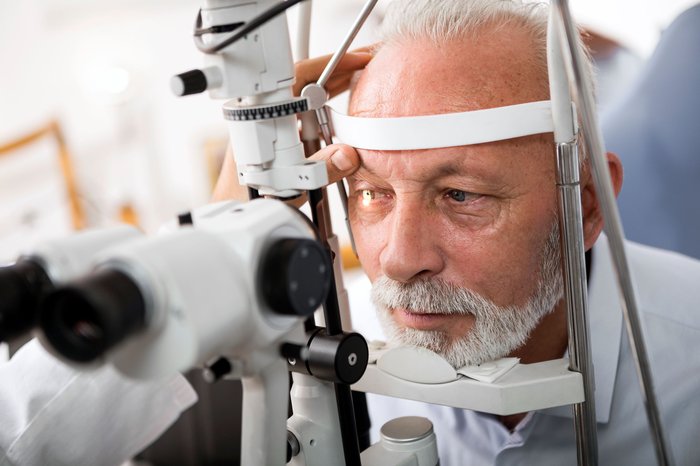It is one of the most common causes of chronic kidney disease (CKD), responsible for one in five people who need kidney replacement therapy (dialysis or transplant).
This page explains what diabetes is, how it affects the kidneys and how you can look after your kidneys if you have diabetes.
What is diabetes?
Diabetes is a serious condition where the glucose (sugar) levels in your blood are too high. You get glucose from food and drink. It is moved from the blood to your cells by a hormone called insulin, which is made in the pancreas.
There are two main types of diabetes:
Type 1
Type 1 usually starts in childhood or adolescence, although it can occur at any age. People with type 1 diabetes can’t make any insulin themselves as their bodies attack the cells in the pancreas that normally make it.
Type 2
Type 2 usually starts in middle age, although it is becoming increasingly common in younger people. People with type 2 diabetes produce some insulin but it is not effective and over time not enough is made. In both types of diabetes, glucose builds up in your blood as it can’t get into your cells. Without treatment, high glucose levels can cause serious damage to your eyes, heart, feet and kidneys.
Find more information on the types of diabetes on the Diabetes UK website.
What are the symptoms of diabetes?
The main symptoms of uncontrolled diabetes are:
- Having to go to the toilet to wee a lot
- Being very thirsty
- Feeling tired
- Losing weight without trying to
- Blurred vision
- Having regular infections such as thrush
- Poor healing of cuts and scrapes
How will diabetes affect my kidneys?
Diabetes can affect your kidneys in two main ways:
- Kidney disease (diabetic nephropathy). High glucose levels cause extra blood to flow through the tiny filters in your kidneys, so they have to work harder than normal to clean it. Over time this can damage the filters, causing them to leak protein. This causes further kidney damage.
- Disease of the kidneys’ blood vessels (renovascular disease). High blood pressure causes a “furring up” of the artery to the kidney, reducing the blood supply and causing scarring.
Kidney damage occurs slowly over many years. It can be identified in its early stages by very small amounts of protein in the urine that has leaked from the kidneys’ damaged filters. It is important that people with diabetes are screened regularly for kidney disease to find and treat any problems early, before more serious damage can occur.

What other problems can diabetes and kidney disease cause?
Both diabetes and kidney disease can cause high blood pressure which increases the risk of heart attacks and strokes.
Foot and eye problems are also common with people with diabetes and kidney disease. Regular checks with your GP and optician are therefore important to try to stop any problems from developing or to spot them early on when they can be easier to treat.
How will my kidneys be monitored if I have diabetes?
Your kidneys will be monitored by your GP during your regular diabetes checks. It is very important to have your urine tested at least once a year, as protein leaking into the urine is the first sign of kidney damage. It is also important to pick this up early to protect your kidneys from further damage.
Your GP will also monitor your blood pressure and you will have regular blood tests to check your kidney function. If your kidney damage progresses, you will be referred to a kidney specialist (nephrologist) in hospital to discuss treatment options.

How is diabetes treated?
Diabetes is a life-long condition that needs regular monitoring.
Type 1 diabetes is treated by multiple daily insulin injections or an insulin pump. You will be shown how to do these injections yourself at home. You will need to continue to do these injections yourself to maintain your health. This can seem very overwhelming at first, but you will receive support from your healthcare team.
Type 2 diabetes is usually treated with lifestyle changes, including maintaining a healthy balanced diet, increasing the amount of exercise you do and trying to lose weight. Most people with type 2 diabetes will also be offered medication. This is usually in the form of tablets to start with, although insulin injections may also be needed eventually.
SGLT2 inhibitors are a group of medications approved for treating type 2 diabetes. They work by blocking the reabsorption of glucose in the kidneys, so that excess glucose is removed from the body through the urine. This helps to lower blood glucose levels. Some SGLT2 inhibitors have been shown to help slow the progression of kidney disease in people with type 2 diabetes. Ask your doctor for more information.

How can I look after my kidneys if I have diabetes?
- Stop smoking. Smoking is a health risk for everyone, but for people with diabetes the risk is even greater. It can make your kidney disease worse and contribute to heart attacks and strokes. Talk to your GP for advice and to be referred to specialist support. Visit www.nhs.uk/live-well/quit-smoking for more information.
- Keep your blood pressure under control. Your GP may prescribe medication to help with this. You can buy a blood pressure machine at your local pharmacy to check your own blood pressure at home.
- Keep your cholesterol level (fatty substance in the blood) within the range recommended by your doctor or nurse. This may involve a change in diet and/or medication. Ask your healthcare team to refer you to a dietitian.
- Keep fit. The standard government advice is to aim to exercise for around 30 minutes a day, at least three days a week. Exercise can help you to manage your weight and help to lower your blood pressure. Your healthcare team may refer you to a physiotherapist who can help design the right exercise routine for you.
- Check your medications. Some medicines can be harmful to people with kidney disease. Tell your GP about any medicines that you are taking, even if they are not related to your diabetes. This includes medicines, herbal remedies or supplements that you buy yourself from a chemist or health food shop.
- Keep your alcohol intake to 14 units a week or less. Visit www.nhs.uk/live-well/alcohol-support for information on how to reduce your alcohol intake.
It is important that you take responsibility for your own health. Go to all your appointments, learn the best ways to manage your blood pressure and blood glucose levels and get support to take as much control of your health as possible. Your healthcare team can help you to manage your diabetes and improve your overall health.
Where can I find out more information?
- Diabetes UK
- NHS - Diabetes
- NHS - BMI calculator

Publication date: 05/2024
Review date: 05/2027